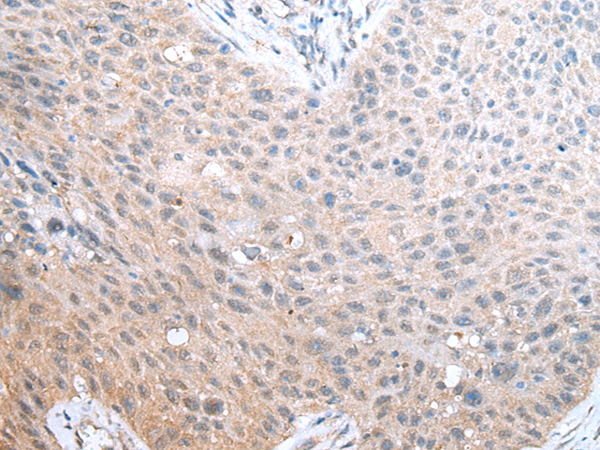
| WB | 1/1000 | Human,Mouse,Rat |
| IF | 咨询技术 | Human,Mouse,Rat |
| IHC | 1/100-1/500 | Human,Mouse,Rat |
| ICC | 技术咨询 | Human,Mouse,Rat |
| FCM | 1/10-1/50 | Human,Mouse,Rat |
| Elisa | 咨询技术 | Human,Mouse,Rat |
| Aliases | RDC7 |
| Host/Isotype | Rabbit IgG |
| Antibody Type | Primary antibody |
| Storage | Store at 4°C short term. Aliquot and store at -20°C long term. Avoid freeze/thaw cycles. |
| Species Reactivity | Human |
| Immunogen | Synthetic peptide of human ADORA1 |
| Formulation | Purified antibody in PBS with 0.05% sodium azide and 50% glycerol. |
+ +
以下是3篇关于GPHN(Gephyrin)抗体的研究文献概览,涵盖不同研究方向和疾病关联:
---
1. **文献名称**:*Autoantibodies to Gephyrin in Stiff-Person Syndrome*
**作者**:Butler, M.H. et al.
**摘要**:该研究首次报道在僵人综合征(SPS)患者血清中发现针对Gephyrin的自身抗体,揭示了GPHN抗体可能通过破坏抑制性突触的GABA能信号传导,导致患者肌肉强直和痉挛的病理机制。
---
2. **文献名称**:*Gephyrin Antibodies Alter Synaptic Clustering in Cultured Neurons*
**作者**:Tretter, V. et al.
**摘要**:通过体外神经元培养实验,证明抗Gephyrin抗体会特异性结合并干扰GABA能突触后支架蛋白的聚集,导致抑制性突触结构异常,为研究GPHN在神经发育障碍中的作用提供模型支持。
---
3. **文献名称**:*Association of Gephyrin Antibodies with Autoimmune Encephalitis*
**作者**:Lancaster, E. et al.
**摘要**:在一组自身免疫性脑炎患者中发现GPHN抗体阳性病例,这些抗体与认知功能障碍和癫痫发作相关,提示Gephyrin可能成为新型自身免疫性神经系统疾病的生物标志物。
---
**备注**:如需具体DOI或发表年份,可进一步补充数据库检索关键词(如结合“autoantibody”或“neurological disorders”)。
Gephyrin (GPHN) is a multifunctional scaffolding protein central to the organization of inhibitory postsynaptic domains in the central nervous system. Primarily localized at postsynaptic sites, it anchors glycine and GABAA receptors by interacting with their subunits and microtubules, ensuring synaptic stability and neurotransmission efficiency. Beyond its structural role, gephyrin participates in molybdenum cofactor biosynthesis, linking synaptic function to cellular metabolism.
GPHN antibodies, developed as research tools, are widely used in neuroscience to study inhibitory synapse formation, plasticity, and pathology. These antibodies enable visualization of gephyrin clusters via immunofluorescence, immunoblotting, or immunohistochemistry, aiding investigations into neurological and psychiatric disorders like epilepsy, autism, and schizophrenia. Aberrant gephyrin expression or post-translational modifications are implicated in these conditions, making GPHN antibodies critical for mechanistic studies.
Clinically, anti-gephyrin autoantibodies have been identified in rare autoimmune encephalitis cases, often associated with cognitive deficits or movement disorders. Such findings highlight gephyrin's dual relevance as both a research target and a potential biomarker. Ongoing research leverages GPHN antibodies to explore therapeutic strategies, including synapse-targeted interventions and modulators of receptor-gephyrin interactions, advancing our understanding of neural circuit dysregulation and repair.
×